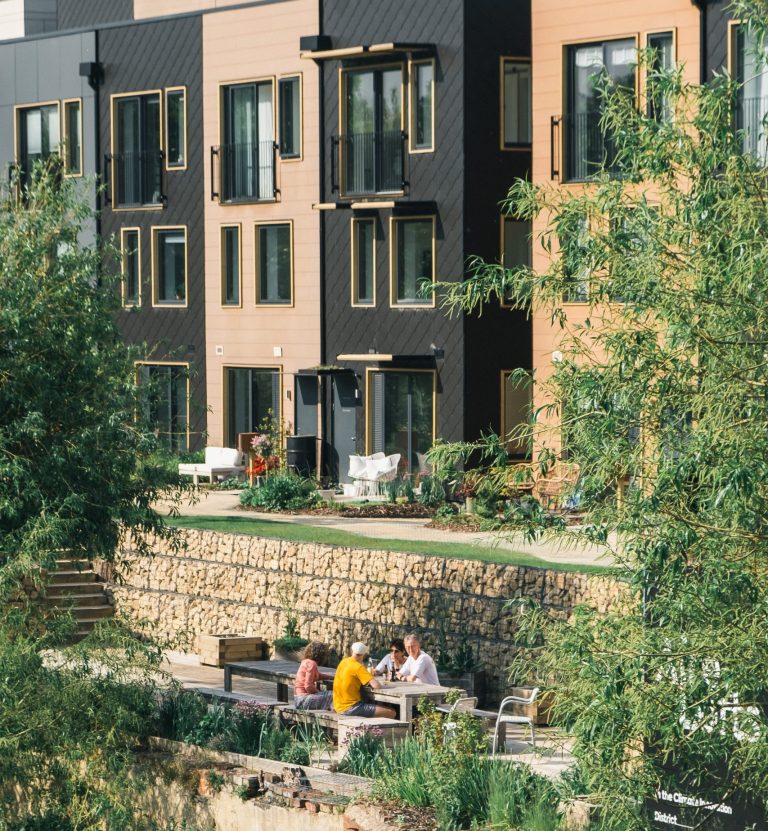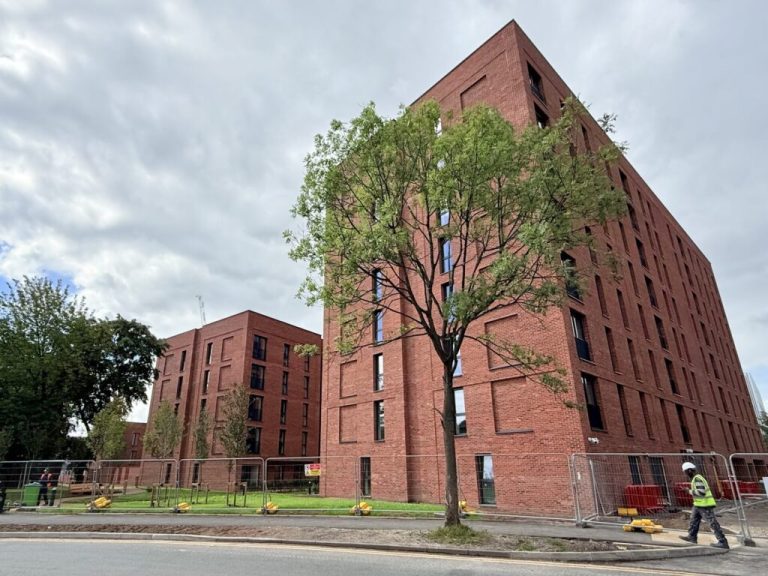Manchester City Council’s housing company, This City, has reached a major milestone with the completion of its first development, No. 1 Ancoats Green, delivering 129 low-carbon homes in the heart of the city. The landmark scheme, built on council-owned brownfield land, includes 119 apartments and 10 townhouses ranging from one to four bedrooms. As part of its mission to deliver affordable, high-quality housing, 30% of the homes will be let at the Manchester Living Rent, a level that aligns with local housing allowance, making the properties accessible to a wider range of residents. Residents are set to begin moving in over the summer as the final phases of construction wrap up. The new homes overlook the newly revitalised Ancoats Green and are closely integrated with the surrounding public space and park. With city centre amenities on their doorstep, the development also benefits from excellent transport connections and a network of walking and cycling routes. Each property is designed with energy efficiency in mind, featuring large triple-glazed windows, top-tier insulation, and airtight construction to keep summer temperatures down and winter bills low. Residents will also have access to the nearby Ancoats Mobility Hub, offering cycle storage, EV charging, and car parking. The Ancoats Green development marks the first step in a much larger programme for This City. A second phase, in partnership with the Greater Manchester Pension Fund, is already in the pipeline and is set to deliver more than 1,500 new homes across Manchester. An open day is scheduled for Friday, August 1 at 11am, inviting the public to tour the development, meet members of the project team, and learn more about This City’s future plans. This City plays a key role in delivering Manchester’s housing strategy, which aims to build at least 36,000 new homes between 2022 and 2032—with a minimum of 10,000 for social rent, council housing, or genuinely affordable homes, including 3,000 in the city centre. Cllr Bev Craig, Leader of Manchester City Council, said: “No. 1 Ancoats Green is the product of a vision we have had since the inception of This City, to use our own land to build the homes we know our residents want and need, to a high specification, and on our own terms. “For many years it has been incredibly challenging for Councils to build homes to meet demand, but through This City we are proving that it is possible – while also delivering genuinely affordable housing for our residents. “This is only the beginning for This City and through our new joint venture partnership with the GM pension fund, we are scaling up delivery and we have more than 1,500 new homes in the coming years with sites across the city.” Building, Design & Construction Magazine | The Choice of Industry Professionals














